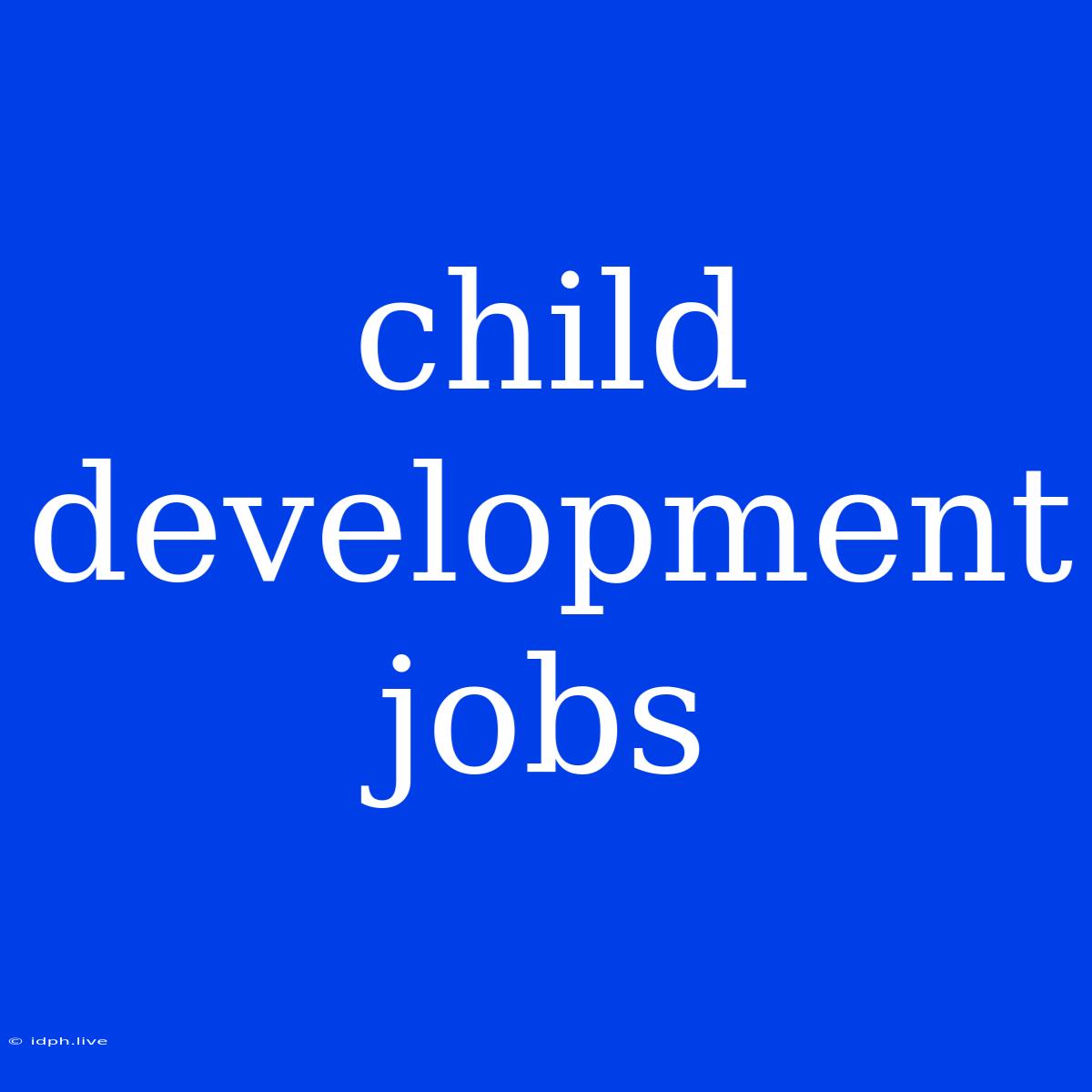Careers That Shape Young Minds: Exploring Child Development Jobs
The world of child development is a dynamic and rewarding field, filled with opportunities to nurture young minds and guide them on their journey of growth. From early childhood education to psychology and therapy, various career paths offer the chance to make a meaningful impact on the lives of children.
What is Child Development?
Child development is a comprehensive field that explores the physical, cognitive, social, and emotional changes that occur in children from birth to adolescence. It encompasses a wide range of disciplines, including:
- Early Childhood Education: Focuses on the development of young children (ages 0-8) through play-based learning, social-emotional development, and early literacy skills.
- Child Psychology: Examines the psychological processes and behaviors of children, including cognitive development, social-emotional learning, and mental health.
- Child Therapy: Provides therapeutic interventions for children facing emotional, behavioral, or developmental challenges.
- Special Education: Offers support and accommodations for children with disabilities, ensuring they have access to appropriate education and development opportunities.
Career Paths in Child Development
1. Early Childhood Educators:
- Preschool Teachers: Design and implement age-appropriate curricula, create stimulating learning environments, and nurture children's social and emotional growth.
- Daycare Providers: Offer a safe and nurturing environment for infants and toddlers, providing basic care, play opportunities, and early learning experiences.
- Early Intervention Specialists: Work with children experiencing developmental delays, providing individualized therapy and support to help them reach their full potential.
2. Child Psychologists and Therapists:
- School Psychologists: Provide psychological assessments and interventions for children with learning, behavioral, or emotional challenges within the school setting.
- Child Psychotherapists: Use various therapeutic approaches to address emotional, behavioral, and developmental issues in children.
- Developmental Psychologists: Conduct research and contribute to our understanding of child development, often working in academic settings.
3. Other Related Professions:
- Social Workers: Advocate for children's well-being, connecting them with resources and support systems.
- Child Life Specialists: Provide emotional and developmental support for children in healthcare settings, helping them cope with medical procedures and hospitalizations.
- Special Education Teachers: Develop and implement individualized education programs (IEPs) for children with disabilities, ensuring they receive appropriate instruction and support.
Benefits of a Career in Child Development:
- Making a Difference: You can directly contribute to the lives of children, shaping their development and fostering their potential.
- Work-Life Balance: Many child development jobs offer flexible work hours and schedules, allowing for a better balance between work and personal life.
- Variety and Challenge: The field is diverse and constantly evolving, offering opportunities to specialize in various areas and face new challenges.
Preparing for a Career in Child Development:
- Education: A bachelor's degree in early childhood education, child development, psychology, or a related field is often required for most entry-level positions.
- Experience: Gain practical experience through internships, volunteering, or assisting in child development settings.
- Certification: Consider pursuing professional certifications, such as the Early Childhood Education (ECE) credential or the Registered Behavioral Technician (RBT) certification.
Conclusion
A career in child development is a rewarding and fulfilling path for individuals passionate about fostering children's growth and well-being. With a commitment to education, experience, and a genuine love for children, you can make a lasting impact on young lives and contribute to their positive development.

